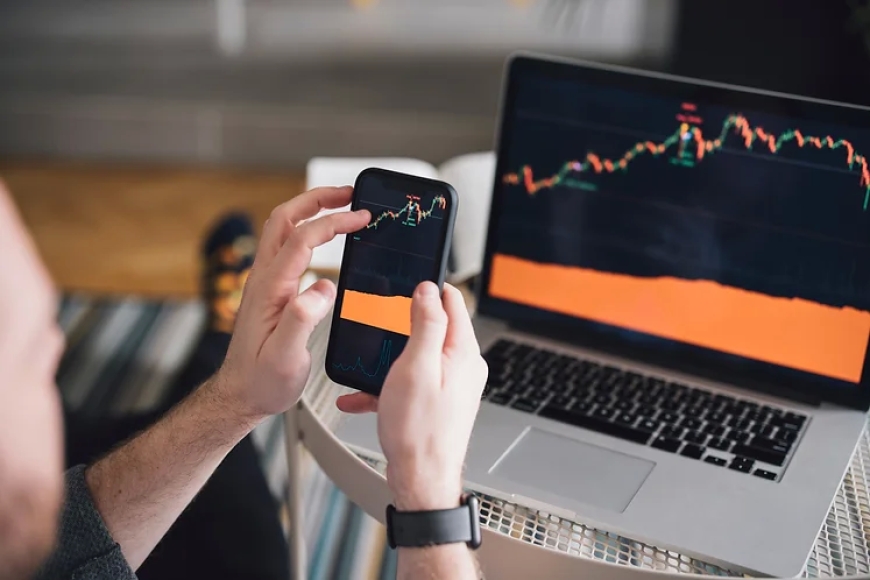How to Choose the Best CFD Broker?
Contracts for Difference (CFDs) have become a popular investment tool, offering the possibility to speculate on price differences of various financial instruments without the need to physically own them.

Contracts for Difference (CFDs) have emerged as a popular investment tool, offering traders the opportunity to speculate on the price movements of various financial instruments without the need to physically own them. Selecting the right CFD broker is crucial for achieving trading success. This article will delve into the essential factors to consider when choosing a CFD broker, ensuring you make an informed decision that aligns with your trading goals.
1. Safety and Regulation
The safety of your investment is paramount when choosing a CFD broker. Ensuring that the broker is regulated by reputable financial authorities is a critical step. Regulatory oversight by organizations such as the Financial Conduct Authority (FCA) in the UK, the Cyprus Securities and Exchange Commission (CySEC) in Cyprus, and the Australian Securities and Investments Commission (ASIC) in Australia provides a layer of security. These regulators enforce strict financial and operational standards, which helps to safeguard your funds and ensure fair trading practices.
Regulated brokers are required to segregate client funds from their operating capital, meaning your money is protected in the event of the broker’s insolvency. Additionally, these brokers must adhere to stringent reporting and transparency standards, providing you with greater confidence in their operations.
2. Trading Platforms
The trading platform is your primary tool for engaging with the financial markets. A good broker should offer a variety of platforms that cater to different trading styles and preferences. Some of the most popular and respected trading platforms include:
-
MetaTrader 4 (MT4): Known for its robust technical analysis tools, customizable charts, and support for automated trading through Expert Advisors (EAs). MT4 is widely used by traders of all experience levels.
-
MetaTrader 5 (MT5): An enhanced version of MT4, MT5 offers additional features such as more timeframes, advanced pending order types, and integrated fundamental analysis tools. It’s ideal for traders seeking a comprehensive trading platform.
-
cTrader: Renowned for its user-friendly interface, cTrader provides advanced charting tools, one-click trading, and a range of technical indicators. It’s particularly popular among traders who value a smooth and intuitive trading experience.
-
NinjaTrader: This platform is favored by day traders and those who require advanced analytics and automation features. NinjaTrader offers extensive backtesting capabilities and a wide range of technical analysis tools.
When choosing a broker, consider the availability of these platforms and whether they offer mobile and web-based versions, allowing you to trade on the go.
3. Range of Instruments
A diverse range of instruments is crucial for effective portfolio diversification and maximizing trading opportunities. A top-tier CFD broker should provide access to:
-
Stocks: Trade shares from global markets, allowing you to speculate on the performance of individual companies.
-
Forex: Engage in currency trading with major, minor, and exotic pairs. Forex trading is highly liquid and offers numerous trading opportunities.
-
Commodities: Trade CFDs on raw materials like oil, gold, silver, and agricultural products. Commodities can provide a hedge against inflation and economic instability.
-
Stock Indices: Access major global indices, such as the S&P 500, NASDAQ, FTSE 100, and DAX. Trading indices allows you to speculate on the overall performance of a market segment.
-
Cryptocurrencies: Trade popular digital currencies like Bitcoin, Ethereum, and others. Cryptocurrencies are known for their volatility, providing significant trading opportunities.
Ensure the broker offers a comprehensive range of instruments that align with your trading strategy and market interests.
4. Trading Tools
Advanced trading tools are essential for conducting thorough market analysis and executing effective trades. Look for brokers that provide:
-
Technical Indicators: A wide array of indicators such as Relative Strength Index (RSI), Moving Average Convergence Divergence (MACD), and Bollinger Bands. These tools help you analyze price movements and identify trading opportunities.
-
Fundamental Analysis Tools: Access to economic calendars, market reports, and real-time news feeds. These tools help you stay informed about market-moving events and economic data releases.
-
Trading Automation: The ability to use trading robots and automated strategies can enhance your trading efficiency. Platforms like MT4 and MT5 support the use of Expert Advisors (EAs) for automated trading.
-
Risk Management Tools: Features such as stop-loss, take-profit orders, and negative balance protection are vital for managing risk and protecting your investment.
A broker that offers a comprehensive suite of trading tools can significantly improve your trading experience and effectiveness.
5. Educational Resources
Educational resources are particularly important for beginner traders but can also benefit experienced traders looking to refine their skills. Leading brokers often provide a range of educational materials, including:
-
Webinars: Regular live training sessions conducted by market experts. Webinars cover various topics, from basic trading concepts to advanced strategies.
-
Online Courses: Structured courses that guide you through the fundamentals of trading and progressively cover more advanced topics.
-
Articles and E-books: Detailed written materials that explore different aspects of financial markets, trading strategies, and technical analysis.
-
Tutorial Videos: Step-by-step video guides that demonstrate how to use trading platforms, apply technical indicators, and execute trades.
Access to high-quality educational resources can accelerate your learning curve and improve your trading skills.
6. Credibility
A broker’s credibility can be assessed through user reviews, industry recognition, and the broker’s operational history. Consider the following:
-
User Reviews: Feedback from other traders on forums and review sites can provide insights into the broker’s reliability and customer service.
-
Industry Awards: Recognition and awards from reputable industry organizations highlight the broker’s excellence and quality of service.
-
Operational History: A broker with a long-standing presence in the market often indicates stability and trustworthiness. Established brokers have a proven track record and are more likely to provide a reliable trading environment.
Summary
Choosing the right CFD broker is a critical step towards trading success. By considering factors such as safety, regulation, available trading platforms, range of instruments, advanced trading tools, educational resources, and the broker's credibility, you can make an informed decision. A well-chosen broker will not only enhance your trading experience but also help you navigate the complexities of the financial markets with confidence.
Investing time in selecting the best CFD broker for your needs can pay off significantly in the long run. With the right broker, you can focus on developing your trading strategies, conducting in-depth market analysis, and ultimately achieving your trading goals.
What's Your Reaction?

























